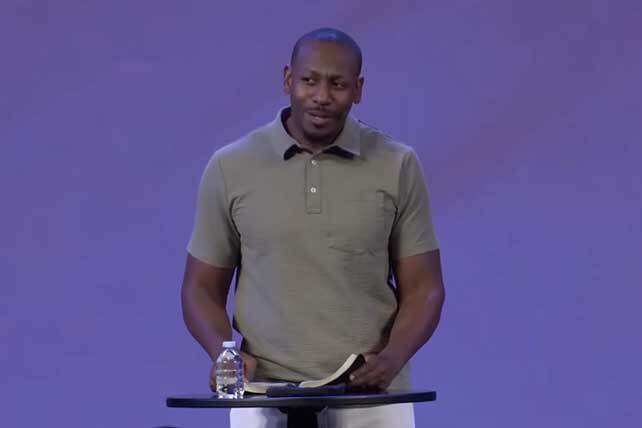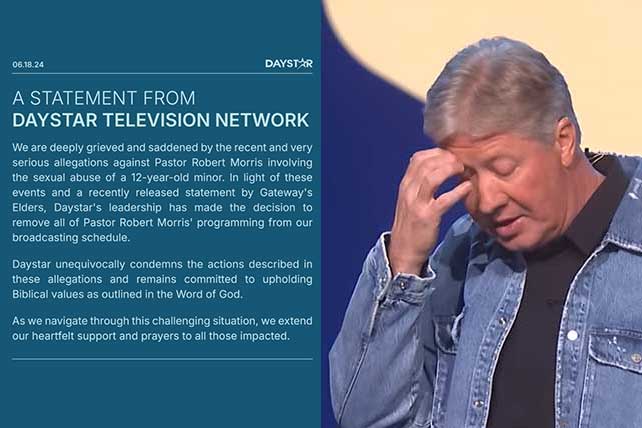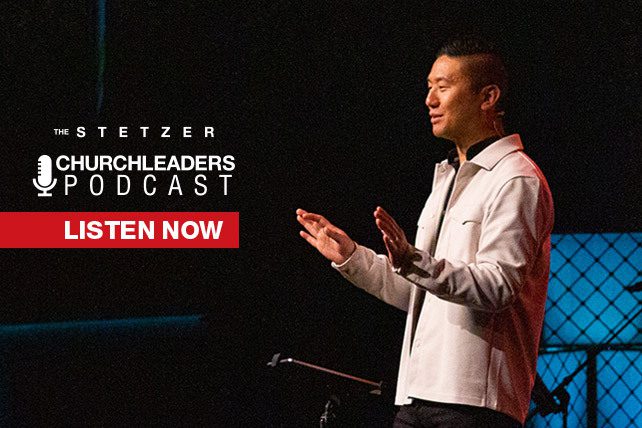Daniel Im on The Stetzer ChurchLeaders Podcast.mp3: this mp3 audio file was automatically transcribed by Sonix with the best speech-to-text algorithms. This transcript may contain errors.
Voice Over:
Welcome to the Stetzer Church Leaders Podcast, conversations with today’s top ministry leaders to help you lead better every day. And now, here are your hosts, Ed Stetzer and Daniel Yang.
Daniel Yang:
Welcome to the Stetzer Church Leaders Podcast, where we’re helping Christian leaders navigate and lead through the cultural issues of our day. My name is Daniel Yang, national director of Churches of Welcome at World Relief. And today we’re talking to Daniel Em. Daniel is a pastor, Bible teacher, writer, and podcast host with a passion for the local church. He’s the lead pastor of Beulah Alliance Church and the author of several books, including his latest, The Discipleship Opportunity Leading a Great Commission Church and a Post-everything world. Let’s go to our host, editor in chief of Outreach Magazine and the Dean of the Talbot School of Theology at Stetzer.
Ed Stetzer:
Well, you know this this is like a reunion. Daniel. Ehm, the listeners to the New Churches podcast, like we we I mean, I, you know, people don’t know. So I had the new churches did we start the New churches podcast? I know I had new churches. Yeah, we started together. We started the New Churches podcast, which is now the most listened to Church Planet podcast in the world. And neither of us do much, much of it. I’m occasionally involved, but but I spun it off. Um, so then for those of you don’t know, Daniel used to work. I mean, not just for me, but we worked together, and you ran the church leadership fellowship. And then. So here’s the irony. The guy who introduced us, Daniel Yang, was the guy that was your successor. Leading the church, finding leadership fellowship. Yeah.
Daniel Im:
That’s right. Yeah. And we’re all still connected and we still like each other. So yeah, it’s good.
Ed Stetzer:
It’s one of the things that I love. And I, for what it’s worth, this is not our conversation today, but I love the fact that, you know, there’s a text group. I don’t think you’re in it, but, you know, the people are in it, like Amy’s in it and Duane’s in it. Lisette’s in it. There’s a text group of people who used to work for me, and they call it people who’ve Earned the right because it’s I’m in the text group and they and they say, you know, when I say something dumb, they say, I remember when Ed Stetzer did this. So I like that when people used to work for you still like you because I got some people in Christian ministry, man, they’ve left a trail of destruction and and same with you, man. People like working with you.
Daniel Im:
Oh, it’s so good to be here. And I’ve. I had heard about this group, but now I have some FOMO that I’m not in it.
Ed Stetzer:
I know, I know, well, you know, they’re mostly my assistants, you know, and you were not really an assistant in that same sense, but, uh, but it is sort of fun. They have a text chain called, I once heard Ed Stetzer say, and they kind of list all the outrageous things anyway, they’ll, they’ll enjoy. But, you know, I could I could get you the names. But anyway, we’re going to talk though about your book today. Now, now, you know, we I’m not your one of your books, I should say, because we wrote together the second or third edition, depending on how you count of planning missional churches. So and I’m so glad. I love that you have just stepped into this space and continue to write. And it’s it’s just neat what the Lord’s done in your life. And so I’m super excited to have you on. Um, so and we, um, you know, so, so this is, uh, the book is called The Discipleship Opportunity you heard a minute ago. Um, so why did you write this book? And who’s going to benefit from reading it? Yeah.
Daniel Im:
So as I came back to Canada, so we worked together in Nashville. And when I came back to Canada six months before the pandemic hit, I came back to do succession. The church is 102 years old. I was succeeding someone who had been leading here for 30, almost 30 years at the time. And I was just getting back into, okay, so not knowing that the pandemic is about to happen and we’re going we’re reaching the lost, we’re multiplying. And then the pandemic hits. And as everyone knows, there’s lots of shifts that end up happening. So as after emerging out of it, I just really started reflecting on how how, you know, how is ministry different in our post pandemic post truth, post Christian post, in a sense, everything world that we’re living in. And when I sat down to reflect on that, what I didn’t want to do was write a pandemic book. But I started going back further. So instead of thinking, okay, what’s different in the last five years? I started looking at the last 70 years and noticing the fact that the church growth movement in the West had such a significant influence on modern day church in the West. And how it’s all done. I started wondering and questioning, okay, are there still ways that the church growth movement is influencing the way that we lead our churches, and. In a sense, people aren’t even attributing what they are doing to the church growth movement because it’s 70 years old. Are people still leading in ways that perhaps as we emerge and as we enter into this post-everything world, isn’t going to produce the results that we wanted to see, to to see an awakening happen, to see people come to bow their knee at the foot of the cross. So that was the question that I started with and how I entered into the book.
Ed Stetzer:
Yeah. And it’s interesting because, you know, I don’t want to say anything about your wonderful title, but the title I when I heard it, because I know you wrote, you know what I jokingly called five silver bullets or six silver bullets, but you’re no silver Bullets book. I kind of assumed it would be more a book about how to do discipleship, but it’s much broader than that. It’s leading. I mean, the subtitle sort of gets at leading a great commission church in a Post-everything world. So again, whoever your publisher is, they’re wonderful. But the discipleship opportunity leading is a bigger part of the book than I expected at the beginning. So and you make a few assumptions and you outline several assumptions that people incorrectly make about church and evangelism. Yeah. Let’s talk a little bit about those and then talk about what you’ve seen to be the most harmful among those assumptions.
Daniel Im:
Yeah. So part of it is we often lead the way that we’ve led teach the way that we’ve been taught, unless we consciously do so otherwise. So the two assumptions that I unpacked and discovered when I was doing my church growth literature review was this assumption, of course, church and the other one, of course, growth. And even still today. Right. There’s this sense where, yes, we are praying and we are wanting our churches to grow. We are we are wanting and praying that the people in our communities would come to know Jesus as their Lord, Savior and King. We want that. But when we examine this, this world that we’re living in, we don’t see that there are simply non-Christians and Christians in our communities. It’s not that simple anymore. And that’s one of the ideas around the quadrant that yes, there are not only non-Christians and Christians, but there are uninterested and interested non-Christians and Christians. And that most significantly reared its head as we’ve emerged out of the pandemic. Right? You take, for example, the uninterested non-Christians who I call sleepers. Think about all the people who just disappeared. The people who may have been willing to come to your church on the arm of a friend, but they are just not willing to come anymore.
Daniel Im:
Or take, for example, the uninterested Christians who I call consumers in the book. Those who and I love listening to people and how they word their phrases, and they often say, I watch church or I watched you or I watched and it was very consumeristic in this sense. So as I started identifying and uncovering that at the same time, I have seen a astronomical number of people, non-Christians and Christians who are have have risen in their dedication to Christ. For Christians who are more frequently attending weekend services, being in discipleship groups, multiplying, evangelizing, and in the same way, people who are interested in Christ but who are not yet Christian. These. There are so many that have been coming to our church and to other churches that I’ve seen coming out of this. So it was really this sense of, hey, instead of directing our ministry attentions on either reaching non-Christians or Christians, let’s focus on those who are interested. Let’s stop attracting. And yeah.
Ed Stetzer:
Give me the categories. Because and just so you know, uh, I haven’t told you this, but we had a, uh, you know, I advised that he gets this campaign. They don’t always take my advice. Sometimes they do. Um, but I actually use your categories and said, here’s something that we should look at and kind of, you know, and so I, I kind of wrote them out and explained it to everybody. So I like them. So but I think you kind of went through quickly. So and in the context of explaining things. But just give us the categories. Yeah. So people kind of have a picture of what they are.
Daniel Im:
Yeah totally. So imagine a box and imagine on the bottom you have non-Christians on one side and Christians on the other, and then on the the vertical axis, you have the uninterested on the bottom and the interested on the top. So what that ends up creating is a box with four quadrants, or a matrix where you have uninterested non-Christians who are sleepers, and then you have uninterested Christians who are consumers, and then you have interested non-Christians who are seekers and then interested Christians who are disciples. So that would be the. And then within that, there’s varying levels of where they might be at. It’s not as simple as for people in your churches and communities, and that’s it. People are on this journey toward Christ or away from him.
Ed Stetzer:
Okay. So, um, and I think I found the categories really helpful because I just I’m a, you know, I think that, um, naming things helps us to navigate things. I know that’s pithy, but I really do think it does. Um, I actually say that a lot. So naming things is helps to navigate things even when I like. I talked about the cultural convulsion kind of after Covid. Naming things helps us navigate things. So so with those categories, you’re kind of moving beyond the distinctions and it’s the interests that you’re focusing in on. Right. So again unpack that a little more. Yeah.
Daniel Im:
So take for example his name is is is eluding me right now. But he came to our church about two months ago. I hadn’t been in any sort of church for over two decades. And he wakes up and there’s just stuff going on in his life that he has this, this sense, and we know it’s the Holy Spirit that’s that’s wooing him. Jesus is wooing him to himself. So he Googles Catholic churches near me. Beulah is the number one result. Okay. There. We don’t spend marketing money or anything targeting Catholic Church keywords or anything. Like the only time we would ever spend, quote unquote marketing money would be around telling people about our Christmas Eve and Easter services. How in the world did Beulah come up, number one on his search results for Catholic churches near me? There’s no earthly explanation for that time. We tried to repeat it over and over again on different devices and it wouldn’t happen.
Ed Stetzer:
How interesting.
Daniel Im:
So stories like that, or like, for example, another individual who she was going through a really rough time and she wanted to get a refill on her prescription. So she calls the number, it rings at Beulah and we’ve had this number for ever. It’s a the church is 102 years old. She calls up again. It’s Beulah. She calls up a little bit later and it just keeps on ringing up. Beulah Alliance Church. So then her words are like, I wonder if this is a sign from God that I’m supposed to be there, huh? Gives her life to Christ, gets baptized, is in celebrate. Recovery is plugged in stories like. That are happening over and over and over again. So why am I sharing this? Is because all of these people, when you think about the quadrant, they were asleep. They were not wanting to go to church. Their church was not on their radar. Jesus wasn’t on their radar. The spiritual things of life was not on the radar. They were uninterested non-Christians. They were asleep and through miraculous means. And we’ve heard in, in, in the majority world and other contexts, Jesus appearing in dreams. And I’m seeing this more and more in Western contexts, even just through the two examples that I shared with you there. The Holy Spirit is stirring in people’s hearts. Jesus, you know, he’s he’s he’s going after the one, and he’s the one that’s creating the interest in their hearts. He’s the one that’s moving them from sleepers to seekers, from the uninterested to the interested. So I share that story because as a church, what would it look like if instead of doing the work that only really the Holy Spirit can effectively do? For the last 70 years we’ve tried to create interest, but what would it look like if we actually instead trusted the Holy Spirit to create that interest and stir that interest in people’s hearts and our ministries, our strategies, our vision? Everything we do in our church is more focused on the interested non-Christians and the interested Christians. Yeah.
Ed Stetzer:
And it well, it is interesting to me because in a sense, you know, it does have a focus of energy. You mentioned earlier the church growth movement, which often talks about receptive, responsive people, and there are receptive, responsive people. And we’re just we’re watching on, you know, just just unfold before us people like Russell Brand trying to figure it out as he kind of walks through these things. And, and it’s there’s a culture I mean, uh, who’s the, uh, you know, lots of other examples. But Jordan Peterson, for example, trying to figure some of that out, one of your fellow Canadians. Yeah. So, okay, so if we were to adopt such strategies, um, what would be different? So, I mean, I think that just missed theologically, it makes sense to go to receptive, responsive people. Let me let me say. Yeah. With the exception, like sometimes in global missions, we do go to hard places that are unreached and often unresponsive people. And thank God for missionaries who spend their life seeing 3 or 4 converts. But in our context, like Edmonton and where I’m at in Los Angeles County, um, it does make sense, I think, to go there and see if the Lord opens doors. But what then for you? You pastor a church there, what’s different in your day to day? And because you really can’t, like, create those Holy Spirit moments, what are you doing differently?
Daniel Im:
Yeah, 100%. So when I think about who I’m preaching to. So the book outlines discipleship, evangelism and preaching what changes you need to do and how you specifically need to disciple, evangelize and preach differently to each of the quadrants. So, for example, from a preaching point of view, if I know that my those who are sitting in the congregation and those who are online, if I know that they are already interested, then when it comes to my introductions, when it comes to my points, when it comes to my application, all of that, I know that yes, there are both non-Christians and Christians in the church right now. I know that, but I’m not expending energy trying to make Christianity cool in a sense, right? I’m not trying to expend energy trying to hit the lowest common denominator and then expect them to come to a different environment for a deeper, uh, enrichment in their theology and all that stuff. They are there. Now. Someone may have zero background when it comes to the Bible and may not know any of the Bible stories. I get that, but there’s something stirring in their hearts and their lives that when it comes to actually preaching it is actually, I find, quite freeing because I have the freedom now to go deeper.
Daniel Im:
I have the freedom not to exclude non-Christians, but I have the freedom to go deeper and to ask these questions, to engage with the text and the applicability of the text to our lives. So that would be one example when it comes to preaching. But when it comes to discipleship as well, tools like Alpha, for example, there’s this sense where we are, we love alpha at our church, and we run it all the time. But there’s this sense for the seekers where I’m it’s it’s I know you’re asking, is there more to life than this? I know you’re wondering, like, for example, this one individual, Jess, she came and on Christmas Eve a couple of years ago, and God just changed her heart and just she had this supernatural sense that there is. Yes, that that the way that she was living her life isn’t the way that she needs to live her life. But she did not give her life to Christ in that moment. She just recognized that. Wait a second. Maybe there’s more than what I see with my eyes.
Ed Stetzer:
The sets are Church Leaders Podcast is part of the Church Leaders Podcast Network, which is dedicated to resourcing church leaders in order to help them face the complexities of ministry. Today, the Church Leaders Podcast Network supports pastors and ministry leaders by challenging assumptions, by providing insights and offering practical advice and solutions and steps that will help church leaders navigate the variety of cultures and contexts that we’re serving in. Learn more at Church leaders.com/podcast network.
Daniel Im:
So in that moment she’s moving from asleep to awake, but she’s still seeking. She’s still in the non-Christian side. Well, she started then going to Alpha because we offer Alpha multiple times and, you know, you can there’s lots of tools like that. But but alpha.
Ed Stetzer:
One, you’re putting on the side of something for interested.
Daniel Im:
Non-christian. Exactly. On the seekers. And she did that. And then in and through Alpha, she gives her life to Christ. She gets baptized on Easter, and I’m seeing her grow in her faith now, two years after all that happened. Right. So in a sense, by by focus. So there’s the preaching side, there’s the discipleship, the evangelizing evangelism side. But in a sense, what you are giving your team and what you are doing with your strategy is you are focusing, you’re focusing, and you’re saying, hey, we’re not going to we’re not going to do everything or whatever is cool and whatever is Vogue and new, you know, we’re going to focus knowing that. These people are interested it.
Ed Stetzer:
It does feel like in the book it’s kind of a subtle, friendly critique of the seeker movement. Um, that and you can tell me I’m totally wrong because I’ve been wrong. You’ve told me I’m wrong many times in many conversations that we’ve had, but it seems like a subtle critique of the secret movement that, you know, you can do all these things to try to engage these seeker types, but if they’re not interested, non-Christian, if they’re not in some of those categories, it’s in other words, focus above the line. Yeah. Rather than and so so is that am I am I fair that that’s a not so maybe a subtle but friendly critique of the seeker movement? Yeah, there’s a change of how things are today. No, for.
Daniel Im:
Sure. And it is partly because things are so different today in our post everything world. And part of it is honestly, and this is long story short, like the church that I have, the opportunity to pastor grew to its size very much as a result of a lot of the seeker sensitive tactics and strategies. And there was a sense in a time where that was very effective. And we have lots of disciples today. And I mean Fuller, the school I graduated from was an epicenter of that movement. Oh for sure. So when it comes to that, yes. But to just continue to employ those tactics because, oh, you know what? The world’s kind of the same again, right? We’re not, we’re not, we’re not in this emergency health crisis anymore. So I’m just going to go back to what I learned in school. I’m just going to go back to all of these books that I had, and it worked then. So shouldn’t it work now because things are normal again. So that’s that sense where, hey, we do live in a and that’s the subtitle, right. Leading a great commission church in a post everything world because it is post so many of these ideas.
Ed Stetzer:
So so that because again, one of the things I want to say to people, you know, I we talk about this a lot when we did the New Churches podcast, like, I planted churches in a lot of ways was a different era. Yes. And, you know, the last church I planted we left was in, uh, Nashville. Was that eight years ago now. But, I mean, there’s some very big shifts. It’s certainly a much more post-Christian context. It’s a much more, um, you know, we’ve lost our home field advantage. So it does then ask, ask and answer the question. So at, say, Beulah Alliance, which, by the way, is not the most seeker friendly name of any church ever. Yeah, totally. Beulah. But again, I think the irony is I think in Edmonton people would have no idea that Beulah has any religious significance. So it’s almost like pre-Christian to them. Yeah. What does that mean? You know, um, but so what is that like, as you are now, you’ve been pastoring there for a few years, just so you know, he left LifeWay and we were working together and went to pastor this, uh, this a well known megachurch in Edmonton, uh, Canada. Um, Edmonton, Alberta. Um, Canada. So, um, but the so, so what is that, like, look like? Because we’re working through some of this at Mariners, where I serve as teaching pastor, where we surely everybody would say, who knows Mariners, that it was a significant growth in the seeker movement. Yes. But we wouldn’t see ourselves the same way. And in some ways, what you’re describing would be strategies. We’ve adopted. Again, you you named it so. So what’s different about and again, you I know you have a predecessor. Yep. Just like Eric Geiger has a predecessor in Kenton, Beshore, but I think your predecessor and Kent Bashaw would also say the times are different. Yes. So what’s different in your strategy that we would see as pastors and church leaders listening to the podcast that they would say, that’s something we can learn from?
Daniel Im:
Yeah, okay. So I’ll give two parts and two ideas were let’s, let’s, let’s talk a little bit about the uninterested, the consumers and the sleepers and how this actually by focusing your efforts, your vision, your strategy, everything on the interested. What about the uninterested right. What about them? So two practical ideas. One for the uninterested non-Christians. This isn’t this strategy on focusing on the interested is not an excuse to just say, you know what? It’s 100% the Holy Spirit’s responsibility to stir up interest in someone’s heart. So, you know, we’re not really going to do hard evangelism. We’re not going to go to the most unreached places because, hey, Jesus is going to show up to them in their dreams and he’ll do it supernaturally. That’s not what I’m saying. Okay?
Ed Stetzer:
I was going to say that’s that would not be. Yeah. Okay.
Daniel Im:
Yeah. So what I’m saying kind.
Ed Stetzer:
Of led up to that. Like that was what you were saying. So. All right, I got you. Yeah.
Daniel Im:
So that’s not what I’m saying. What I’m saying is when you look at the interested Christians, the disciples, how do you minister to them? How do you help them? Because every single disciple in your context has they have people. They live, work, study and play with who are uninterested non-Christians, right? They have people. They live, work, study and play with who are asleep spiritually. And these individuals who are asleep spiritually, you know, they’re not going to look at the handout you put in their mailbox. They’re not going to look at the social media ad you have. They’re going to drive. Church and they’re not even going to see. They’re not even going to notice that you’re even there because they’re asleep spiritually, but they are friends with disciples. So this is where we then look at some of the research that you were a part of. Billy Graham Center and LifeWay. I love the non-Christian, the the 2000 non-Christians that you all surveyed a few years back. And and just digging into that research again and, and just looking at that and seeing, hey, you know what? What is the majority of non-Christians said and I think it was like 70 something percent had said, hey, if a if a Christian friend talks to me about their faith, I’m willing to have a conversation.
Daniel Im:
And I’m paraphrasing, right? But it was a majority. The keyword is friends. So when we even narrow in on that, what would it look like for you and your church to equip your disciples to neighbor? Well, and that’s what we talk about at Beulah, where it’s not necessarily it is evangelism, but evangelism has this sort of connotation to it. So our team has come up with this nuance of saying, you know, you know, we’re going to invite everyone to neighbor. What does it look like to love your neighbor? Well, to love them, to pour into them, to invest in them, to pray with them. And as a mutual friend of ours, Sam chan, out in Australia, he talks about this in one of his books that this idea of, hey, yeah, how do we evangelize in community as well, where it’s not just that this one person who is asleep spiritually, I’m not the only Christian they know, but now there’s multiple that they know and there’s a community that’s forming around them, and then it’s the Holy Spirit that’s going to stir their heart. So, so practically speaking, that is a huge thing where it’s like, how are you equipping the disciples in your church to neighbor, where they are neighboring with their those they live, work, study and play with.
Ed Stetzer:
And focusing your energies on both those disciples, but then also the interested who are non-Christians as well. Now, one of the things you say, um, because you know, you live in Canada, which is, you know, probably ten, 15 years ahead in negativity, but you do live in Alberta. So it’s it’s also it’s complicated to people like it is. You know, Boston is difficult then, you know, Dothan, Alabama. And might I say that that Edmonton is nothing like Dothan, Alabama religiously. But um, but you know, Canada is more negative towards Christianity. America is a growing negativity towards the church, maybe, you know, not necessarily towards individual Christians, but what you say is, is that we should create an open I’m quoting an open, non-judgmental and non-threatening space where people in your community can ask questions that they’re wrestling with, unquote. And by the way, you ended a sentence with a preposition, which according to I think it’s Oxford English Dictionary, this week is or this year is now allowed. So you’re ahead of the time because it really bothered me that they allowed that. But it’s now a thing. So I’m going to end all my sentences with preposition of. See what I did there anyway? Um, so, um, so so what? I mean, in a world that portrays the church as judgmental and threatening, how do we do that?
Daniel Im:
Yeah, that goes to the disciples. Right? So if in our world today that’s becoming increasingly negative and hostile toward Christianity, if there are more and more people who would say, yeah, you know what, I’m not going to go into church. I won’t go into your Easter egg hunt drop. I’m not going to do stuff like that, because who knows what, how I’m going to be judged and etc. what they won’t say no to is a follower of Christ who is genuinely loving them like Christ loves them, right? Who is not bashing their heads with the Bible, right? But is loving them as Christ would love them. They’re not going to close, especially if there’s this natural relationship where, yeah, you’re my neighbor, you’re mine. I’m going to show the love of Christ to them. So that’s that piece. Even going back to your research, going quoting that with the Billy Graham Center, there’s that sense where, yeah, how do we neighbor? Well, how do we how do we sow those seeds of friendship. And we do that not necessarily just me to my neighbor, but in community with one another. And that’s the piece where that I believe that mixed with how the Holy Spirit’s going to stir in their hearts and work in and through their situations. Those are the pieces combined with prayer that’s going to move them from the uninterested to the interested. Yeah.
Ed Stetzer:
And again, the categories are the broader categories were sleepers, seekers, consumers and disciples. But then there are category and there are sub categories and descriptions under under each of them. Um, I think but a lot of people, a lot of pastors and church leaders, a lot of our audience would be saying, okay, these people you call the disciples, how do I disciple them? What kind of practices? And again, this you’ve written on this in No Silver Bullets and other places. So talk to us about that and maybe if you don’t mind, kind of personalize that. What are you doing at Beulah Alliance that aligns with that. Yeah, totally.
Daniel Im:
So oftentimes when we think about Christians and there’s I’m in the in the matrix, there’s the disciples and the consumers. Right. And what often ends up happening in our churches. Is without this matrix, we jumble them all up together. They’re Christians. And how do we disciple the Christians in our context? Unfortunately, what has ended up happening is our discipleship strategies have gone toward meeting the needs of the consumers more than those who are disciples. So in the book I say, hey, two things we need to equip the disciples and we need to challenge the consumers. And those words, those those verbs are super important when it comes to a strategy, right? How do we equip the disciples in our context, where it’s not just about and we talk about very contextually, a disciple of Jesus is someone who gathers, grows, gives, and goes together. So that’s taking the much of the stuff from No Silver Bullets and bringing it into a local context around a discipleship pathway. So when it comes to the Christians in our context, we are really good at gathering together and growing together, right? We are great at that. And that’s the stuff that oftentimes the consumers want. They want more Bible studies. They want more learning opportunities. They want more, right? They love to gather. They love to do the Christian potlucks. They want to do their women’s ministries. There’s men ministries there, this, that and the other. Right. Gathering and growing. What? Christians, and particularly consumers, are the thing that they avoid the most is the giving and the going.
Ed Stetzer:
The disciples and consumers. Because both disciples.
Daniel Im:
Yeah, yeah, yeah. So both the giving and the going. Right. That’s the thing that you.
Ed Stetzer:
See the distinction between the disciples and the consumers, both of whom are Christians. But there’s distinction. So say that again, giving and the going.
Daniel Im:
Yeah, the giving and the going. So the disciples, we are equipping our disciples to gather, grow, give and go. Right. We’re equipping them. And this is the whole idea around that verb equip, right. You’re equipping them with opportunities to give their talents, their time, their treasures. Right. Maybe it’s leading Alpha, maybe it’s moving in, maybe it’s neighboring. Well, maybe it’s leading this, right. You’re equipping them with opportunities to give. You’re equipping them with opportunities to go. And you’re not saying, hey, I’m going to do it for you, or we’re going to do this. You’re you’re just equipping. These are the things that oftentimes the consumers will opt out of. Right? Because they don’t want that. They want it done for them. They want the church to do all this for them. And unintentionally, if we think that all Christians are the same and we’re not making this distinction of the uninterested and the interested, what will end up happening, and I’ve seen this so often in churches, is that it’s the consumers that will drive the strategy of the church, because they’re the most vocal. They’re the ones that are sending the angry emails. They’re the ones that are leaving negative reviews of your church on Google. Right? They’re the ones that are doing all this. And oftentimes unintentionally, we’re letting them drive our strategy.
Ed Stetzer:
Gosh, that is I mean, this and again, this is the strength of the book. And again, I want to recommend and encourage people to pick it up. The discipleship opportunity leading a great Commission church in a Post-everything world. Uh, last question. Um, what you know, we used to our, our new church’s podcast was like 18 minutes. So this is like an eternity compared to that. But we do, I don’t know, 30 minutes ish or so. Yeah. Uh, but what advice would you give? Uh, church leaders and, you know, 20, 24 and beyond about how we again, the big picture. So maybe just you’re landing the plane for us. How do we lead through discipleship opportunity? How do we lead a great commission church and post-everything world?
Daniel Im:
Yeah, I.
Daniel Im:
Would say when you think about your context and there’s and that’s why in the second part of the book, there’s a chapter for each of the quadrants to really dig down and do discipleship, talk about discipleship, evangelism and preaching strategies for each. But when I think about your question and think about wrapping up this podcast, the thing for me is there there are too many churches that are held captive in their mission. They’re held captive in their their the Great Commission that that urges them to multiply and to plant churches, plant campuses, multiply and reach the lost. And there is they’re they’re held captive by the desires of the consumers. And it’s the consumers in their context that are often the naysayers and the ones that are preventing them from boldly and courageously moving forward and multiplying, multiplying individuals. Right. We there’s there’s so much overlap, right, with planting missional churches and all the stuff that we did together where you’re multiplying individuals, disciples. Right. Ministries, churches, context movements. Right. There’s just this this, this rapid multiplication. It’s the consumers that are holding us hostage in a sense. So what I would say to everyone who’s listening is, what would it look like for you to challenge, disturb and disrupt the consumers in your context? Right. I love this one quote where the task of a preacher is to is to disrupt the comfortable and comfort the disrupted, to disturb the comfortable and comfort the disturbed. And when it comes to that context, yes, you are a shepherd, yes you are praying for and you want to see people grow in all the fullness of Christ. But don’t let consumers hold you hostage anymore. Challenge them, disrupt them, disturb them for the sake of Christ. And for the Great Commission.
Daniel Yang:
We’ve been talking to Daniel M you can learn more about him at Daniel Imcom, and be sure to check out his book, The Discipleship Opportunity Leading a Great Commission Church in a Post-everything world. And thanks again for listening to the Stetzer Church Leaders podcast. You can find more interviews, as well as other great content for ministry leaders at Church Leaders Company and through our new podcast network, Church leaders.com/podcast Network. And again, if you found our conversation today helpful, I’d love for you to take a few moments to leave us a review that will help other ministry leaders find us and benefit from our content. Thanks for listening. We’ll see you in the next episode.
Voice Over:
You’ve been listening to the Stetzer Church Leaders podcast for more great interviews as well as articles, videos, and free resources, visit our website at Church leaders.com. Thanks for listening.
Sonix has many features that you’d love including automated translation, secure transcription and file storage, share transcripts, world-class support, and easily transcribe your Zoom meetings. Try Sonix for free today.




 None of us are particularly proud of our weaknesses, fears, failures, and missteps. Whether it’s something from our past we haven’t dealt with or something we’re currently facing, we all have areas of our lives that can hold us back from living fully and freely.
None of us are particularly proud of our weaknesses, fears, failures, and missteps. Whether it’s something from our past we haven’t dealt with or something we’re currently facing, we all have areas of our lives that can hold us back from living fully and freely.
























